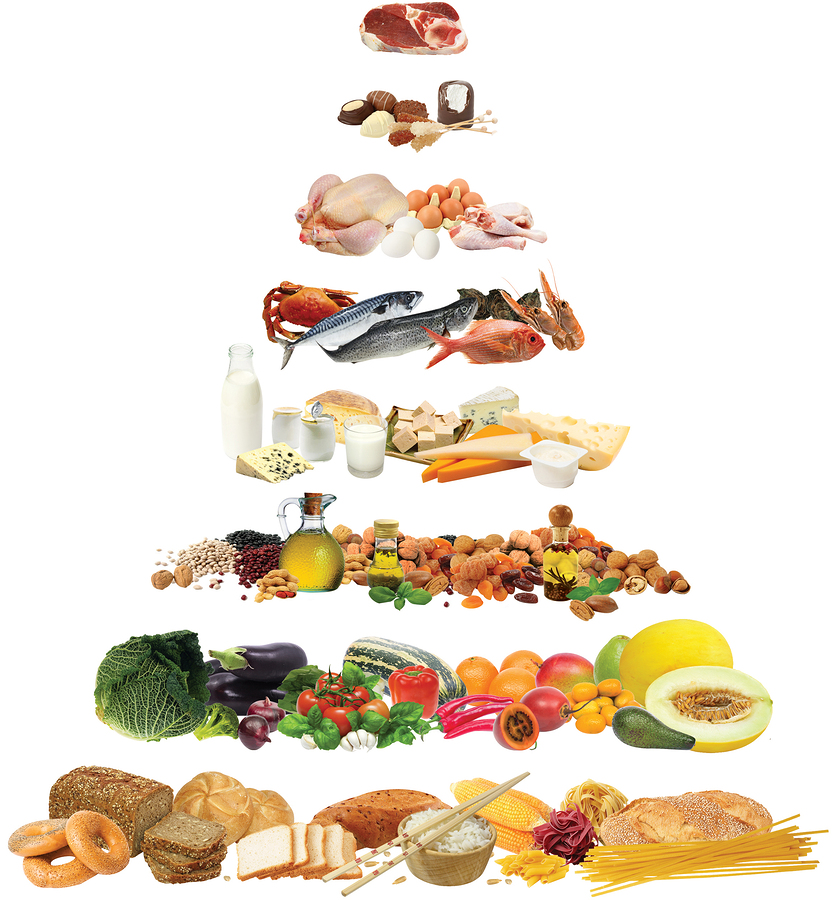A study just released in the New England Journal of Medicine has shown that a  Mediterranean diet supplemented with either extra-virgin olive oil or nuts resulted in an absolute risk reduction of approximately 3 major cardiovascular events. The research was conducted in Spain.
Mediterranean diet supplemented with either extra-virgin olive oil or nuts resulted in an absolute risk reduction of approximately 3 major cardiovascular events. The research was conducted in Spain.
The term Mediterranean diet describes more how people eat in that region of the world rather than a specific diet that you can often find in book stores or online. The American Heart Association post,” There’s no one “Mediterranean” diet. At least 16 countries border the Mediterranean Sea. Diets vary between these countries and also between regions within a country. Many differences in culture, ethnic background, religion, economy and agricultural production result in different diets.”
The traditional Mediterranean diet is characterized by a high intake of olive oil, fruit, nuts, vegetables, and cereals; a moderate intake of fish and poultry; a low intake of dairy products, red meat, processed meats, and sweets; and wine in moderation, consumed with meals. American Heart Association states that, “The incidence of heart disease in Mediterranean countries is lower than in the United States. Death rates are lower, too. But this may not be entirely due to the diet. Lifestyle factors (such as more physical activity and extended social support systems) may also play a part. [1]The American Heart Association goes on to say that more studies need to be done before they can advise people to use the diet.
The Mayo Clinic reported that in a recent study, “more than 1.5 million healthy adults demonstrated that following a Mediterranean diet was associated with a reduced risk of overall and cardiovascular mortality, a reduced incidence of cancer and cancer mortality, and a reduced incidence of Parkinson’s and Alzheimer’s diseases. Therefore they encourage people to consider this diet to avoid major chronic diseases. [2]
The study involved men (55-80) and women (60-80). None of the participants at the time had cardiovascular disease. They had either type 2 diabetes mellitus or at least three of the following major risk factors: smoking, hypertension, elevated low-density lipoprotein cholesterol levels, low high-density lipoprotein cholesterol levels, overweight or obesity, or a family history of premature coronary heart disease. The study began in 2003 and the participants were divided into three dietary groups. The groups consisted on either a Mediterranean diet supplemented with extra-virgin olive oil, a Mediterranean diet supplemented with nuts, or a control diet. Participants in the two Mediterranean-diet groups received either extra-virgin olive oil (1 liter per week) or 30 g of mixed nuts per day (15 g of walnuts, 7.5 g of hazelnuts, and 7.5 g of almonds) at no cost, and those in the control group received small nonfood gifts.[3] There were no calorie restriction and physical activity was not promoted.
The participants in the Mediterranean Diet were screened to make sure that they stayed with the diet. A total of 8713 people were interviewed to participate in the study and the final group chosen consisted of 7447 people. The highest dropout rate was in the control group and the lowest was in the Mediterranean Diet groups. The average time people stayed in the study was for 4.8 years. During the study it was noted that the people in the Mediterranean Diet groups increased their consumption of fish, nuts and extra virgin olive oil the longer they stayed in the study. Physical activity between the groups showed no significant difference.
The results showed that the Mediterranean diet groups resulted in an absolute risk reduction of approximately 3 major cardiovascular events per 1000 person-years, for a relative risk reduction of approximately 30%, among high-risk persons who were initially free of cardiovascular disease. In addition the Mediterranean diet groups also reduced their risk for stroke. The results of the Mediterranean diet associated with better survival include moderate consumption of ethanol (mostly from wine), low consumption of meat and meat products, and high consumption of vegetables, fruits, nuts, legumes, fish, and olive oil. Researchers felt the benefit was most likely due to the consumption of nutrient-rich foods included in the diet.
The researchers concluded that, “We observed that an energy-unrestricted Mediterranean diet, supplemented with extra-virgin olive oil or nuts, resulted in a substantial reduction in the risk of major cardiovascular events among high-risk persons. The results support the benefits of the Mediterranean diet for the primary prevention of cardiovascular disease.”
Katherine Zelman wrote the following for WebMD, “The Mediterranean diet is considered a model for good health. Research continues to show the Mediterranean diet, based on healthy foods and physical activity, are the prescription for a long, healthy life. It is an excellent, enjoyable lifestyle diet plan that is easy to follow, flexible, and best of all – good for you.”[4]
The most notable point in following a Mediterranean Diet would be to limit dietary intake of as much meat as possible and to increase the servings of fruits and vegetables that you are consuming. Studies have shown that processed meats and red meet seem to offer the least benefit and most risk when consumed consistently in large amounts. Dairy products should also be consumed in moderation to get the best benefit from the Mediterranean Diet.
[1] Mediterranean Diet, American Heart Association, Oct. 26th, 2012. http://www.heart.org/HEARTORG/GettingHealthy/NutritionCenter/Mediterranean-Diet_UCM_306004_Article.jsp
[2] Mediterranean Diet Chose This Heart Healthy Diet Option. Mayo Clinic, http://www.mayoclinic.com/health/mediterranean-diet/CL00011
[3] Ibid, Estruch
[4] Zelman, Katherine MPH, RD, LD The Mediterranean Diet, WebMD http://www.webmd.com/food-recipes/guide/the-mediterranean-diet



